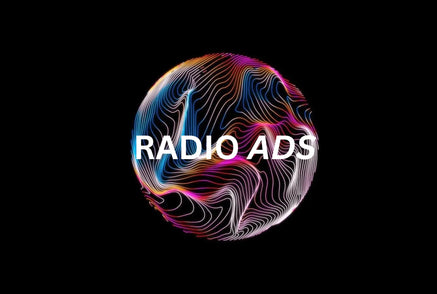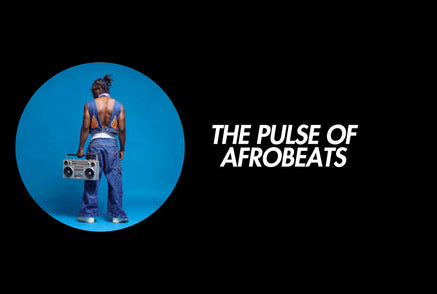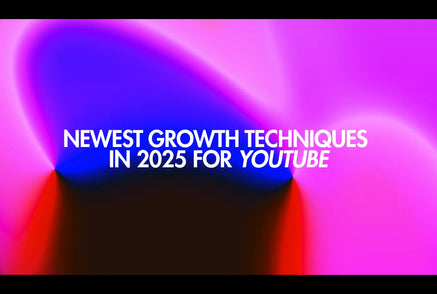How to Release a Song Independently in 2025?
To make the music heard and receive streams on any platform, you have to present it to the audience. Self-releasing may sound scary for beginners, especially if they haven't dealt with streaming platforms at all. Dozens of artists work with distributors to speed up the process and make their content public ASAP. Meanwhile, some independent artists prefer a DIY approach, as they prepare every new release themselves. How is that possible? An average independent musician won't succeed without a record label, a producer, and a solid budget behind them, right? A few years ago, it may be true. You had to hire a team and save resources to release and promote your music effectively.
Today, in the era of digital music business, artists prefer independent music releases for several reasons. In our article, we will discuss how to release music as an independent artist and succeed.
|
Category |
Key Points to Consider |
|
Music distribution |
Connect with a music distributor to release music effectively. |
|
Income & Revenue |
Complete a PRO registration to collect royalties. |
|
Income & Revenue |
Sign up with a MLC to confirm music ownership and get paid for your content. |
|
Personal Brand Development |
Optimize profiles on all music streaming platforms you are presented at. |
|
Personal Brand Development |
Optimize social media profiles to distribute your music and establish your music marketing approach. |
|
Engagement and Growth |
Connect with your audience, present BTS content, and do the Q&A sessions to receive feedback from fans. |
Key points artists should consider before they start releasing music independently.
What Stands Behind Music Release in 2025?
When musicians release a song themselves, they become publishers as well, making them the right holders of their intellectual property. It's important because when you work with music distribution companies or record labels, they take part in your rights and receive royalties that come from streams and music sharing. Self-publishing makes you the only one receiving funds for your tracks, but also makes you the only one responsible for successful sharing. You have to think of:
-
When to upload your music?
-
How to promote them (paid or free promotion)?
-
What platforms to prioritize for music sharing?
-
Whether to release music videos or not?
One of the most common approaches to releasing a track in the music industry is called a waterfall strategy. The sense of this strategy is in releasing tracks gradually on different days. The break between the releases is usually around 3-4 weeks. When the previous song starts to decline, lose engagement, and is no longer that attractive, you reveal a fresh track, so your audience switches attention and doesn't get bored. Instead of a full album release at once, a waterfall method is supposed to keep people interested for a long time.
The Weekend released his album After Hours (2020) with this method. He published multiple singles, combining them to create a full-fledged music album.
The advantage of such an approach is that it aligns with listening habits in society. It encourages listeners to check artist's profiles as they check recent singles and albums. Moreover, the waterfall strategy is adaptable to multiple marketing strategies. Depending on how you plan your releases, you can set time frames between publishing dates.
On Spotify, it's easy for people to discover new music thanks to curated playlists. For example, "New Music Friday" showcases new music on Fridays. All recent tracks released on the platform are gathered here, and because of weekly updates. There are two versions of this playlist available: global and regional. Global versions represent major high-profile releases while regional versions belong to specific countries (for example, New Music Friday UK, US, Australia, etc.). Properly executed single releases on Spotify give you more chances to appear on "New Music Friday" and get recognized. Moreover, it's a chance to get spotted by record labels as they often scout talents via curated playlists.
Independent publishing is also a step towards building your music brand. You build connections with your fans, show unique features that come with every single release, and create an eye-catching profile that will become recognizable immediately.

Set Realistic Goals to Release Singles Successfully
Music releases won't make a difference if you will do it without specific goals. When people share their tracks on platforms like Spotify, they do it to get a higher stream count, boost revenue, or get their content in major Spotify playlists. When your music appears on Release Radar or Discover Weekly, it proves that your songs are highly demanded. For example, if you are at the beginning of your path, your goal is to keep growing and post more music on Spotify, so the profile will look alive, and more people would like to engage with it.
Once you decide to release albums on Spotify, you should do it according to the plan to avoid major obstacles and achieve maximum engagement on the platform. Check this video to understand how to release an album within six months.
When setting goals for music releases, think of how the release will go. Will it be just an online version, or do you want to release a physical copy as well? Sometimes, artists make merch releases along with music releases to get more profit and succeed for sure. For example, if people purchase jerseys while purchasing albums on iTunes, it will be a solid advantage for musicians.
Use Social Media for Advanced Promotion
Social media marketing (SMM) helps you effectively use social media and market your music. Invest in advanced promotion on TikTok and Instagram to become wise for long-term promotion strategy. Since you plan multiple single releases, it makes sense to prepare your profile, optimize the content posting schedule, and make your song visible. Visual content boosts music distribution, allowing users to feel the tempo, understand your style, and make a difference in the industry. New artists entering the industry invest in social media presence as much as they invest in music creation. Social media platforms like Instagram and TikTok, as well as YouTube, are excellent choices for music videos, short clips, and announces of upcoming releases.
Complete a PRO Registration to Release Music
Once you are registered with a Performing Rights Organization (PRO), you will be able to receive all the royalties. Whether it's an ASCAP, BMI, SESAC, or any other organization, all you have to do is fill out the form. In the application, you provide the following information:
- Legal name
- Mailing address
- SSN/ITIN
Also, a potential member should be 18 or older to apply for a PRO registration. After receiving the following information, the system will proceed to the next steps, providing you with information about royalties, and documents, and performing an account registration.
Get the MLC
Another important step to take is to sign up with the Mechanical Licensing Collective. It's one of the world's largest databases with copyrights and their owners. They gather royalties from the songs among all the streaming services and send them directly to the right holders. With this move, song authors won't lose engagement and royalties just because someone decides to publish your song on their profile. To make it happen, you have to complete the "Connect to Collect" operation.
Establish Presence on Multiple Platforms
Effective music distribution is not only about the right release day and time. It's also about global online presence. You have to make sure your music is heard by as many listeners as possible. Platforms like Spotify, SoundCloud, Apple Music, Deezer, and others have different audiences that would like to listen to your music. Why not force them to come to one platform? Well, some may not like such a switch and prefer to stay where they are right now. Moreover, each platform has a different set of tools and you can use them to your advantage.
- Spotify has a large user database and the biggest genre presence. You can use it to find your target audience and release new music for fans of your genre.
- SoundCloud is a good option for beginning artists. Still, you have to subscribe to SoundCloud Next Pro to monetize your content and receive royalties for all tracks.
- Apple Music has one of the highest per-stream payments. Once you build your small community and start getting solid engagement, you can get solid royalties from Apple Music streaming.
Musicians and listeners keep arguing about the best music streaming platform: SoundCloud or Spotify, Spotify or Apple Music, SoundCloud or Mixcloud. Each of them is unique, and you won't find a perfect option to get your music released. That's why musicians focus on releasing songs and albums everywhere, even on YouTube. Optimize profiles, create engaging descriptions, and develop a posting schedule to match your audience's activity. It's extremely important for future release strategies because the more people see your content on time, the more streams you get.
Come Up With a Hook and Develop a Promotion Plan Around It
Successful music production may sound unrealistic if you are unprepared for it. An independent music career should be based on a strong marketing plan where you consider everything, including music recording, editing, sharing, and promoting. First and foremost, it's important to have a hook to draw attention. Whether it's a single release or an album drop, you should have a feature behind it. Something people would react to, something that will make music lovers pay attention to your product. It can be an inspiring visual presentation or a flash mob that links to your music and encourages people to follow.
Work on Proper Promotion for Your Music
Simply adding a song to your artist profile may be ineffective because people may miss the release date. You won't receive the desired engagement, and your track will be left without attention. The easiest way to prepare people for the song release is to use Instagram for promotion. Start a promo campaign at least 7 days before release to make sure everyone sees it.
If you have a YouTube channel, use it to announce your new song or an album. Share a teaser or make a video for YouTube shorts, selecting proper hashtags for better visibility.

Eminem sets a release time for his new song, so the fans can turn on a notification, and they won't miss a premier.
Promotion does not end with social media or video platforms. If you want to effectively distribute your music as an independent artist, you have to invest in paid promotion. By getting organic engagement from real listeners, you will be able to expand your audience and surpass other artists on any platform. Organic Spotify promotion from Artist Push gives a solid advantage, so you will get more than you expected.
The process of releasing your music may not be easy, but it allows you to control everything on your own. When you know how to release your music on your own, manage your music, and build a successful personal brand, nothing will stop you from fulfilling your release plan and succeeding in music marketing.
How much does a music release cost?
Does it make sense to develop your own record label?
How to achieve a maximum impact on your release?
How many listeners should you have before releasing your music?




Chris Pie
This blog is a goldmine for DIY artists! The section about choosing a distributor and getting on streaming platforms really helped me streamline my release plan. I’m definitely sharing this with my music friends
This blog is a goldmine for DIY artists! The section about choosing a distributor and getting on streaming platforms really helped me streamline my release plan. I’m definitely sharing this with my music friends